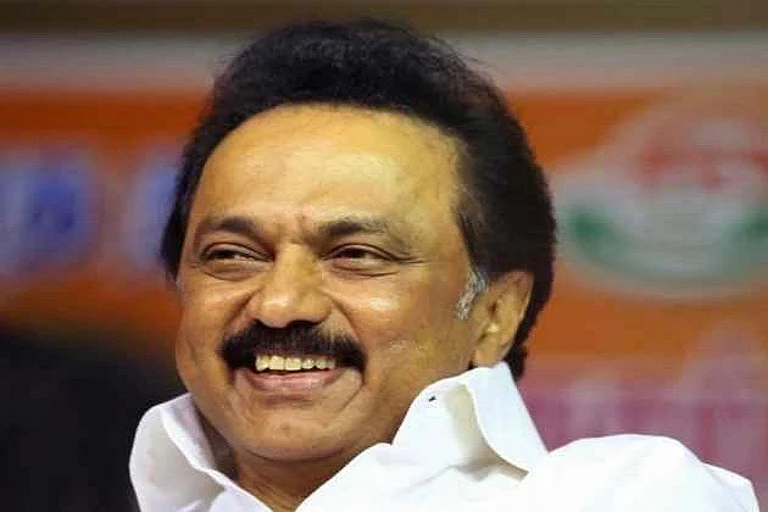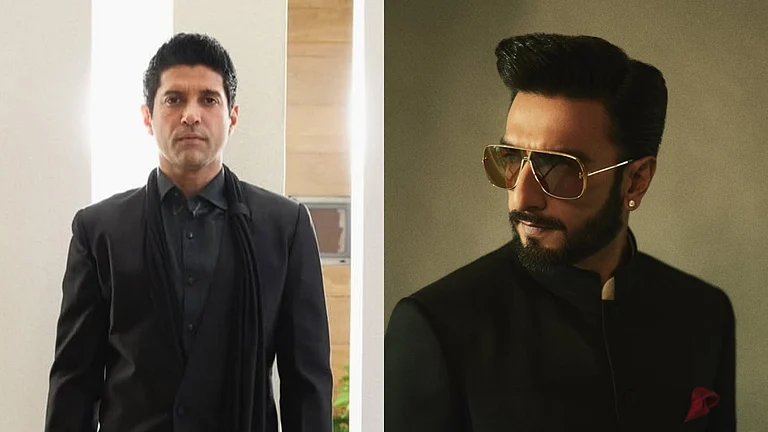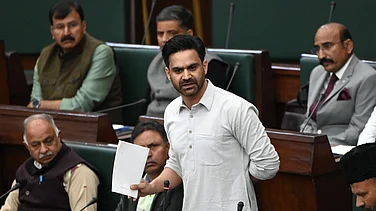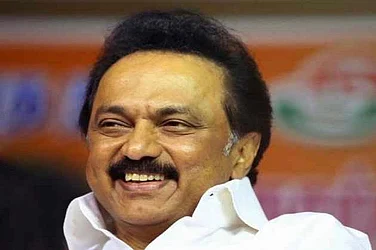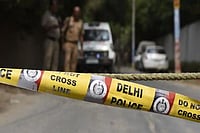The upcoming Assembly elections in five states – Madhya Pradesh, Chhattisgarh, Rajasthan, Mizoram and Telangana – have been widely seen as a litmus test for the general elections next year. And with a successful caste survey by the Nitish Kumar government in Bihar, caste has taken the front seat of nearly all poll campaigns.
The Bharatiya Janata Party (BJP) and Congress have the most at stake as the results of November polls will set the larger political trend in the Hindi heartland and indicate the voters’ preference for next year. On October 10, the Congress Working Committee (CWC) met and announced that if elected to power, the party would conduct a nationwide caste census and remove the 50 per cent cap on reservations for scheduled castes, scheduled tribes and OBCs.
While Congress relies primarily on the dominant OBCs, like the Yadavs, the BJP’s target vote bank is among the non-dominant OBCs, which have small individual populations but all together constitute the larger section of backward castes.
Madhya Pradesh
For the 230-member assembly in Madhya Pradesh, Congress has announced 40 per cent of its seats for OBC candidates, although the party is yet to come out with its list. The party has released two lists of 229 candidates, of which 62 (27 per cent) are from OBC category. Meanwhile, the BJP has already fielded 40 candidates from the OBC community, making it 29 per cent of the list announced, while it intends to surpass its 2018 mark of 39 per cent.
Following the announcement of Congress’ second list, party leader Damodar Singh Yadav, who is the state president of the Congress’ OBC unit, quit accusing Digvijaya Singh of giving less seats to backward classes against his demand of 126 seats. He also accused Singh of giving preference to his MLA son.
For the BJP, on the other hand, its successive poll victories since 2003 has been greatly because of the steadfast support it has received from OBCs which comprise over 50 per cent of the state population. Lest we forget, Shivraj Singh Chouhan, the incumbent chief minister, has been the party’s OBC mascot for the three assembly elections in 2008, 2013, and 2018, even though he is presently playing catch-up.
Prior to that, Uma Bharti and Babulal Gaur (Yadav), two former CMs of Madhya Pradesh from BJP also were from the OBC category. The Congress, though has made a louder pitch for the backward classes, lacks strong OBC leaders to back it. However, it is confident of winning MP polls with Kamal Nath re-emerging as the CM face.
Telangana
In Telangana, the BJP is gearing up for a head-on contest with the ruling Bharatiya Rashtra Samithi (BRS), with its main focus on the OBC vote bank. BJP has several strong OBC leaders in Telangana including - Laxman, the party’s national OBC Morcha head, former state BJP president Bandi Sanjay and five-time Huzurabad MLA Eatala Rajender.
According to reports, the BJP central leadership is also contemplating announcing an OBC face as the chief ministerial candidate for the upcoming polls to have an edge over Congress and set the tone for Lok Sabha elections.
The Congress, meanwhile, is facing a piquant situation in Telangana due to its pitch for a nationwide caste survey. While it reaches for the winning faces, the party has come under tremendous pressure from the OBC leaders, who are demanding their pie in the party tickets.
On the other hand, BRS president and chief minister K Chandrasekhar Rao, is focussed on its development schemes. While the party has been relying on its Dalit votes in the past two elections, it has given only 22 tickets to the OBC candidates this time. BRS has also received criticism for not being able to fully implement its flagship Dalit Bandhu and BC Bandhu schemes.
Chhattisgarh
Chhattisgarh’s politics were largely centred around either upper castes or tribals until Chief Minister Bhupesh Baghel – who is a Congress poster boy for backward classes – brought OBC issues to the forefront. Baghel belongs to the OBC Kurmi community and has always taken pride in his caste identity, something that has connected with the masses.
Now, the BJP is trying to make inroads in the state to regain its lost ground. Baghel's success is seen as one of the main reasons why BJP removed Vishnu Deo Sai, a tribal leader, as party chief and instead appointed Arun Sao, an OBC. The party has also fielded Ishwar Sahu, father of riot victim Bhuneshwar Sahu, to woo Sahu voters.
This year, Congress announced its lists for the 90-seat assembly, fielding 29 OBC candidates while banking on Baghel’s stronghold on the people. BJP has fielded 29 candidates from the OBCs among 85, while the party is yet to announce candidates for five more seats.
Rajasthan
Congress has voiced uncertainty about winning Rajasthan this time after years of bickering between chief minister Ashok Gehlot and his former deputy Sachin Pilot, who has a huge vote base among the younger crowd. But the Gehlot government has also made promises of a caste survey, on the lines of the Bihar census, if it is re-elected. But the question is, will it help maintain the Congress’ streak?
If done, this would be the first caste survey conducted in Rajasthan. According to the 2011 census, Rajasthan’s Dalits account for 17.8 per cent of the state's population and Adivasis 13.5 per cent. Meanwhile, CSDS surveys for the 2013 and 2018 elections indicate that OBCs roughly constitute 35-40 per cent of the state’s population. The strongest community – Jats – at about 10-12 per cent, also falls under the OBC category, barring certain pockets.
Jat leaders are, however, said to have been sidelined by Ashok Gehlot over time since 1999 and BJP leaders like Vasundhara Raje, who married into a Jat royal family, have seen this as an advantage for the saffron party.
Another OBC community, Gujjars, are also miffed with Gehlot because of his sidelining of Sachin Pilot, who is an important Gujjar face for the party. While the caste survey will be a big boost for the state’s OBC community, it has irked the Congress’ Brahmin vote base, a section that may lean towards the BJP now.
Mizoram
Mizoram has the largest tribal population in the country and is almost absolutely made up of Scheduled Caste and Scheduled Tribe population. However, the Gorkhas in the state have long fought over their demand for OBC recognition as per the Mandal Commission report. The issue has come up in assembly elections in the past where Gorkhas have threatened to go for ‘NOTA’ option in view of the step-motherly attitude of the government. However, this time, the Manipur violence situation appears to be playing a greater impact on the upcoming polls, than the caste issue.
Since its statehood, Mizoram has had a two-party contest between the Congress and the Mizo National Front (MNF), the latter being the ruling party, led by Zoramthanga since 2018. MNF, which is a part of the BJP-led North East Democratic Alliance (NEDA) and an ally of the NDA at the Centre, has hinted at a rift due to the violence against Christians – a dominant community in the state – in neighbouring Manipur.
On Monday, Chief Minister Zoramthanga said he will not share the stage with Prime Minister Narendra Modi when he visits the state for poll campaign. "The people of Mizoram are all Christians. When the people (Meities) burned hundreds of churches in Manipur, they (Mizos) were totally against that kind of idea. To have sympathy with the BJP at this time will be a big minus point for my party," Zoramthanga said in an interview to BBC.
He stressed it is the responsibility of the Centre to restore peace in ethnic-violence-hit Manipur so that people can go back to their native state.
Voting in the five states is scheduled to begin on November 7 and will go on till November 30, the ECI announced in a press conference on October 10. Elections in Chhattisgarh will take place in two phases on November 7 and November 17, while Mizoram will vote on November 7. Mizoram has sought a date change as the voting falls on a Sunday and will collide with church services. Madhya Pradesh, Rajasthan, and Telangana will hold their elections in a single phase on November 17, November 25 and November 30, respectively.
The counting of votes is scheduled for December 3.








